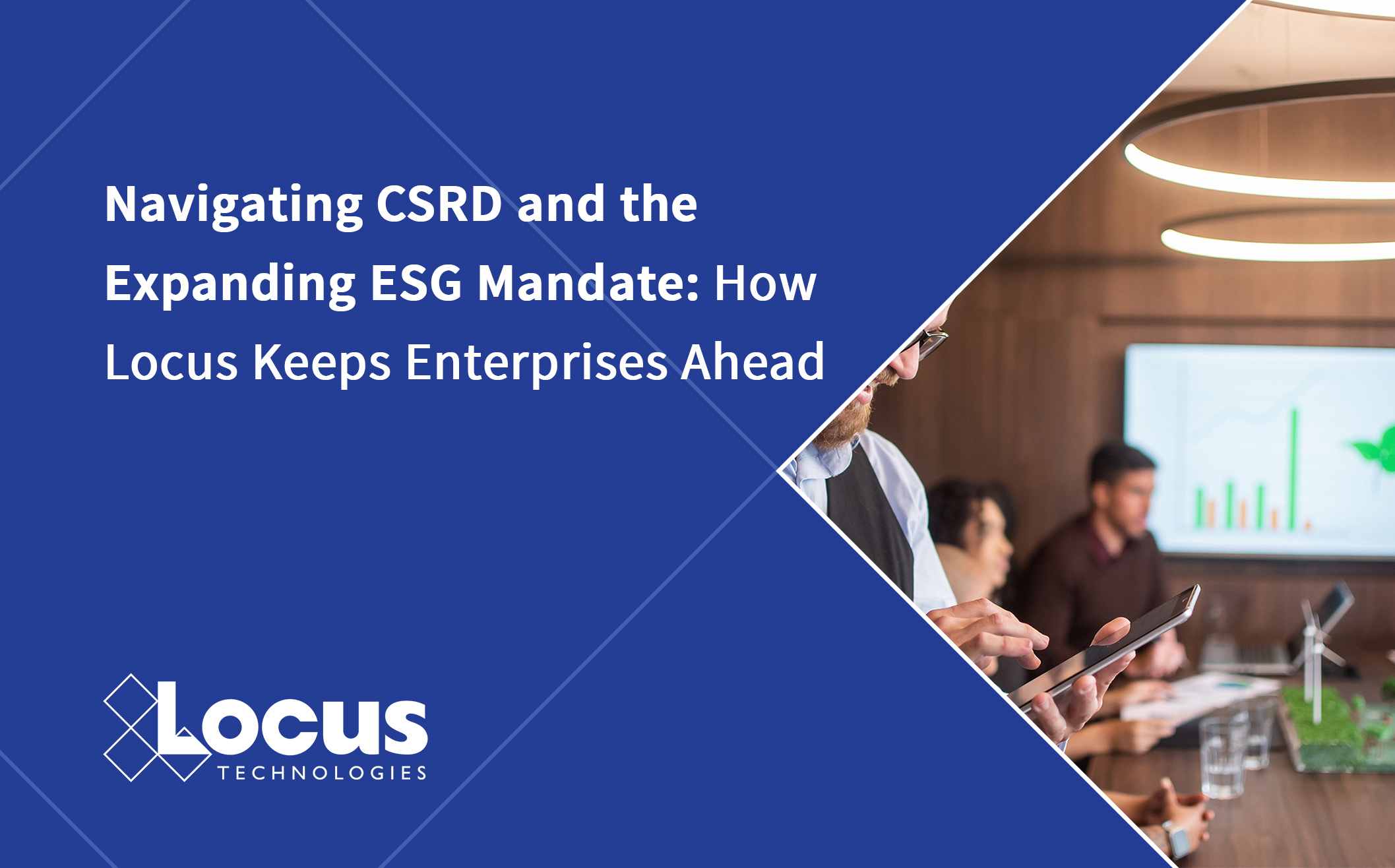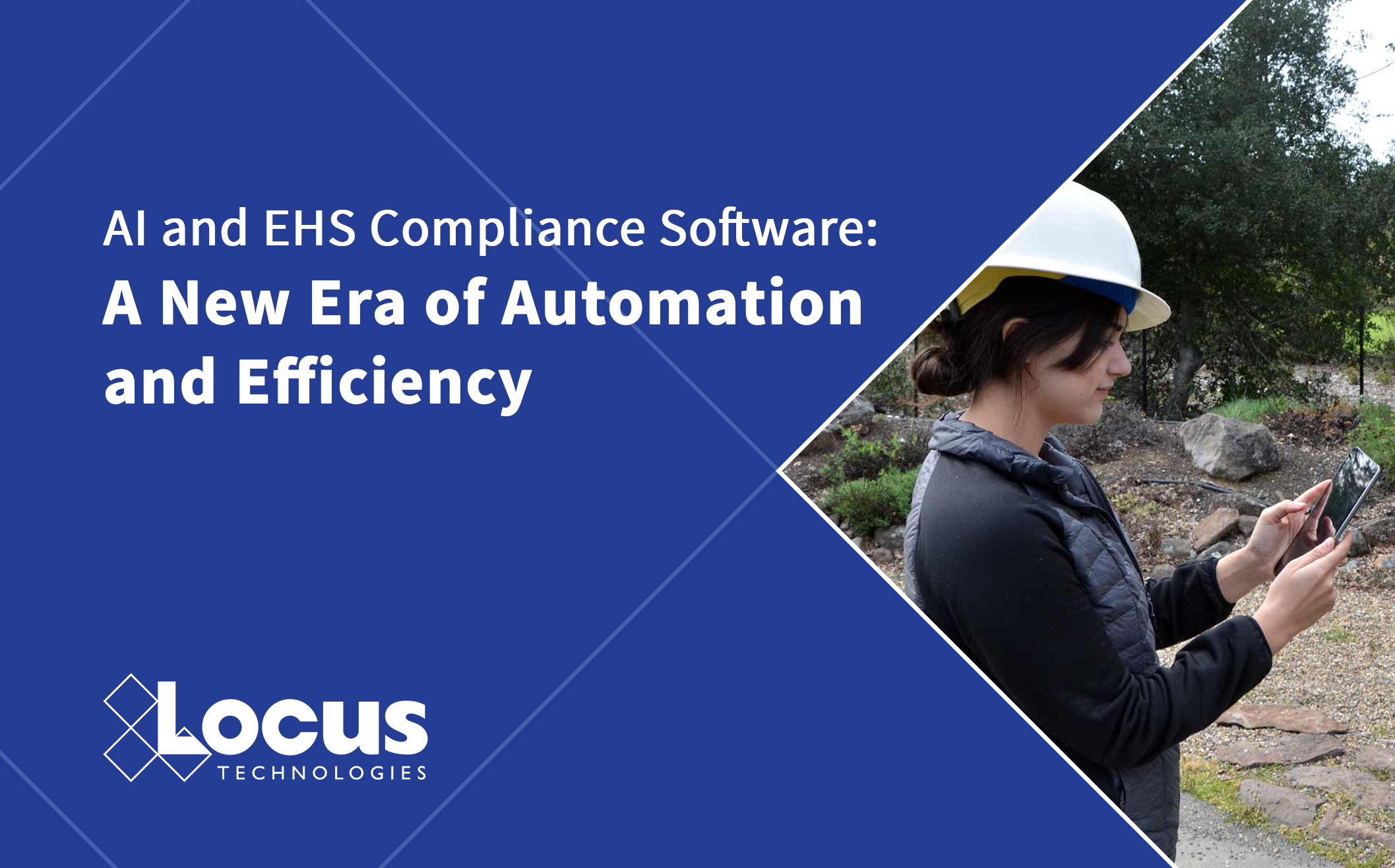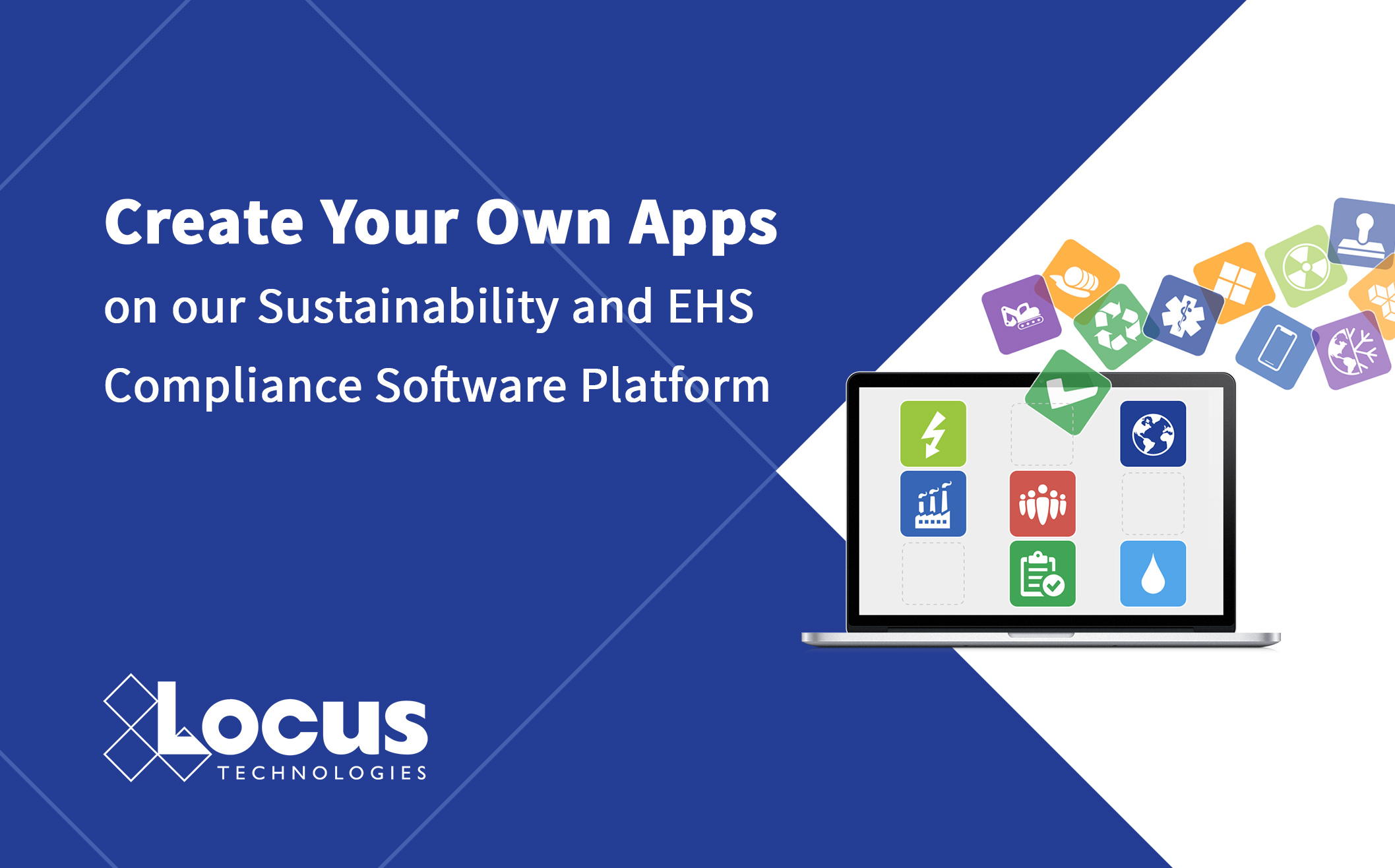
In 2025, global enterprises face a turning point. The European Union’s Corporate Sustainability Reporting Directive (CSRD) is reshaping ESG expectations, setting a new global benchmark for how companies measure, manage, and disclose their sustainability performance.
At Locus Technologies, we empower global enterprises to shift from passive compliance to strategic ESG leadership with corporate sustainability software, using technology that keeps pace with evolving international standards.
CSRD Background: Raising the Bar on Corporate Transparency
The CSRD builds on and significantly expands the earlier Non-Financial Reporting Directive (NFRD), bringing broader scope, stricter requirements, and enhanced enforceability to sustainability reporting in the EU. While the NFRD remains in effect for some entities during the transition, companies previously subject to it must now comply with CSRD (as of the 2024 fiscal year).
With the adoption of CSRD in 2022, the key updates included:
- Wider Scope: Applies to both EU-based companies and non-EU companies generating over €150 million in EU revenue with an EU branch or subsidiary.
- Double Materiality: Requires companies to assess both financial impacts of ESG factors and their own effects on society and the environment.
- Mandatory ESRS Reporting: Covers a broad range of topics including climate risk, water, workforce and circularity, using structured, auditable, machine-readable formats (XHTML with iXBRL).
- Audit Assurance: Begins with limited assurance and progresses to reasonable assurance, bringing ESG reporting to the same level as financial reporting.
These changes elevate ESG to a core component of corporate governance, requiring robust systems for data collection, validation, and reporting.
Reflecting on the 2025 Omnibus Amendments
In response to implementation challenges and stakeholder feedback, the European Commission adopted omnibus amendments to the ESRS in 2025. These revisions aim to simplify reporting and improve practical application—especially for first-time reporters.
Highlights of the recent amendments:
- Materiality Flexibility: Non-material disclosures can be omitted without justifying each one, easing early reporting burdens.
- Deferred Disclosures: Certain complex metrics, like Scope 3 GHG emissions and biodiversity impacts, can be postponed to future cycles.
- Simplified Requirements for SMEs: Smaller and non-listed companies benefit from streamlined obligations and clearer guidance.
- Improved Consistency: Refined language, definitions, and structure help ensure clarity across industries.
These phased adjustments help companies focus on what matters most while building out their ESG infrastructure.
Locus Technologies: Designed for CSRD Readiness
Locus Technologies has long supported Fortune 500 companies like Sempra, DuPont, and Chevron in managing sustainability data across global operations. Our software ecosystem is already equipped for CSRD and ESRS compliance.
Key capabilities include:
- Locus Platform (LP): Tracks ESRS-aligned metrics, supports double materiality, handles Scope 1–3 emissions, and maintains audit-ready records with a configurable, modular design.
- Locus Environmental Information Management (EIM): Manages high-frequency monitoring data and integrates with lab results, permits, and thresholds.
- Locus Mobile (LM): Enables real-time field data collection with traceability and automatic syncing, ensuring data accuracy and completeness.
Every solution is built with third-party assurance in mind, helping your ESG data meet the highest standards of integrity.
U.S.-Rooted, EU-Ready, Corporate Sustainability Software
While Locus has deep roots in the U.S. environmental compliance space, our platform is built to scale internationally.
- Multilingual support
- Customizable workflows
- Alignment with EU ESG frameworks
As CSRD becomes a top priority in Europe, we’re already helping global enterprises comply, expand, and lead with confidence.
Prepare for CSRD with Confidence
CSRD is more than a regulation, it’s a shift toward data-driven sustainability, accountability, and long-term value creation.
With Locus Technologies, you don’t just meet the standard.
You help define it.
Locus is the only self-funded water, air, soil, biological, energy, and waste EHS and ESG reporting software company that is still owned and managed by its founder. The brightest minds in environmental science, embodied carbon, CO2 emissions, refrigerants, and PFAS hang their hats at Locus, and they’ve helped us to become a market leader in compliance and ESG reporting software. Every client-facing employee at Locus has an advanced degree in science or professional EHS experience, and they incubate new ideas every day – such as how machine learning, AI, blockchain, and the Internet of Things will up the ante for EHS, ESG reporting software, and sustainability.



